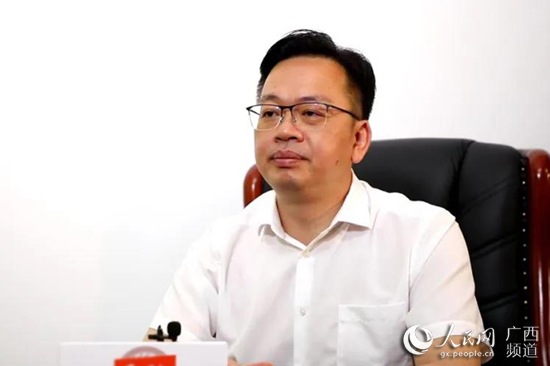NPC deputy Huang Bingfeng: Huanjiang is standing at a new starting point

Huang Bingfeng, the county head of Huanjiang Maonan autonomous county and an NPC deputy, takes part in an interview. [Photo/gx.people.com.cn]
Huanjiang Maonan autonomous county in Guangxi officially withdrew from the list of national impoverished counties on May 9. Huanjiang is the only Maonan autonomous county in China with about 60,000 of the nearly 100,000 Maonan people living here.
"Huanjiang being withdrawn from the impoverished counties list means that the entire Maonan ethnic group has been lifted out of poverty," said Huang Bingfeng, the county head of Huanjiang and a deputy to the National People's Congress, in an interview on May 11.
Since the beginning of the poverty alleviation campaign, Huanjiang has made great efforts in promoting its poverty alleviation measures. The incidence of poverty has dropped from 19.56 percent in 2015 to 1.48 percent at the end of 2019, and a total of 65,300 people have been lifted out of poverty in four years. In 2019, Huanjiang achieved a 6.2 percent increase in regional GDP and a 9.5 percent increase in the per capita disposable income of all residents.
"Withdrawing from the national impoverished counties list has been our goal for many years and also our new starting point," added Huang.
In the future, Huanjiang will focus on the establishment of a scientific poverty prevention mechanism, the development of characteristic poverty alleviation industries, the follow-up management services for poverty alleviation and relocation sites, as well as its 2020 poverty reduction plan to help lift the remaining 5,039 people in eight impoverished out of poverty and achieve sustainable income growth.
This year, Huang has submitted three proposals closely related to the lives of people in Huanjiang Maonan autonomous county, including pushing forward the construction of the Libo-Desheng expressway to a national-level project, adjusting the fiscal system and fiscal policies in less-developed areas, as well as raising standards and subsidies for rural road construction.


